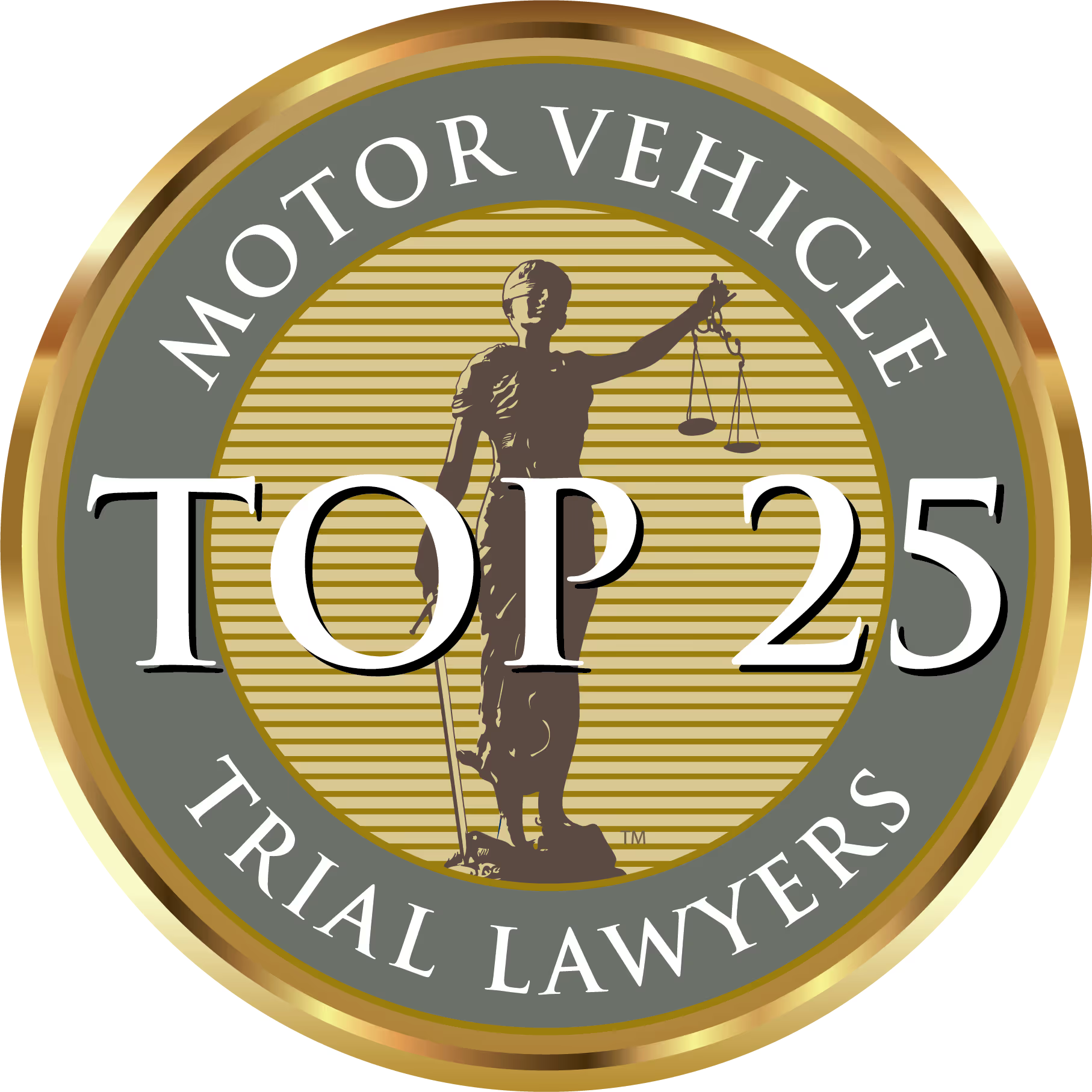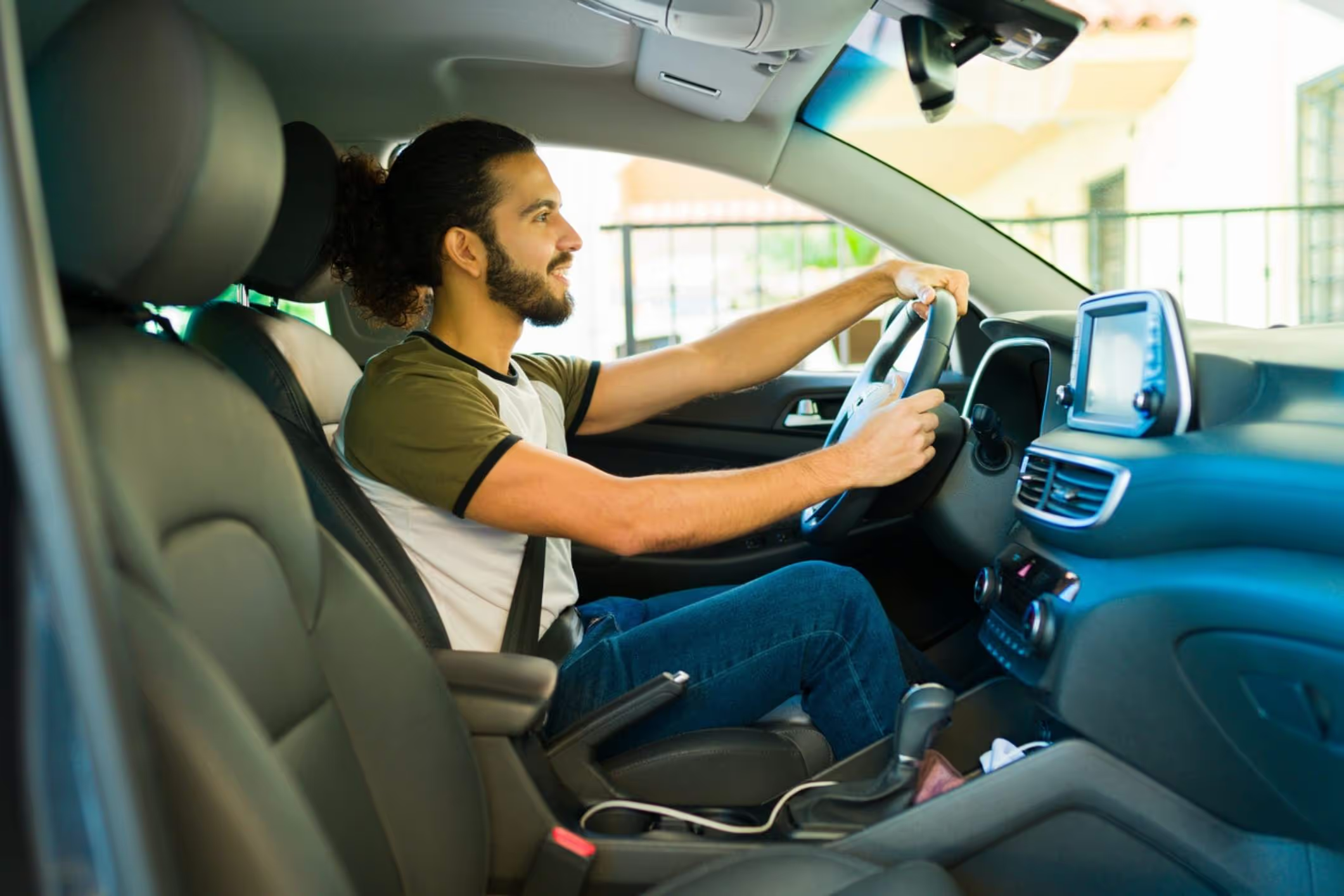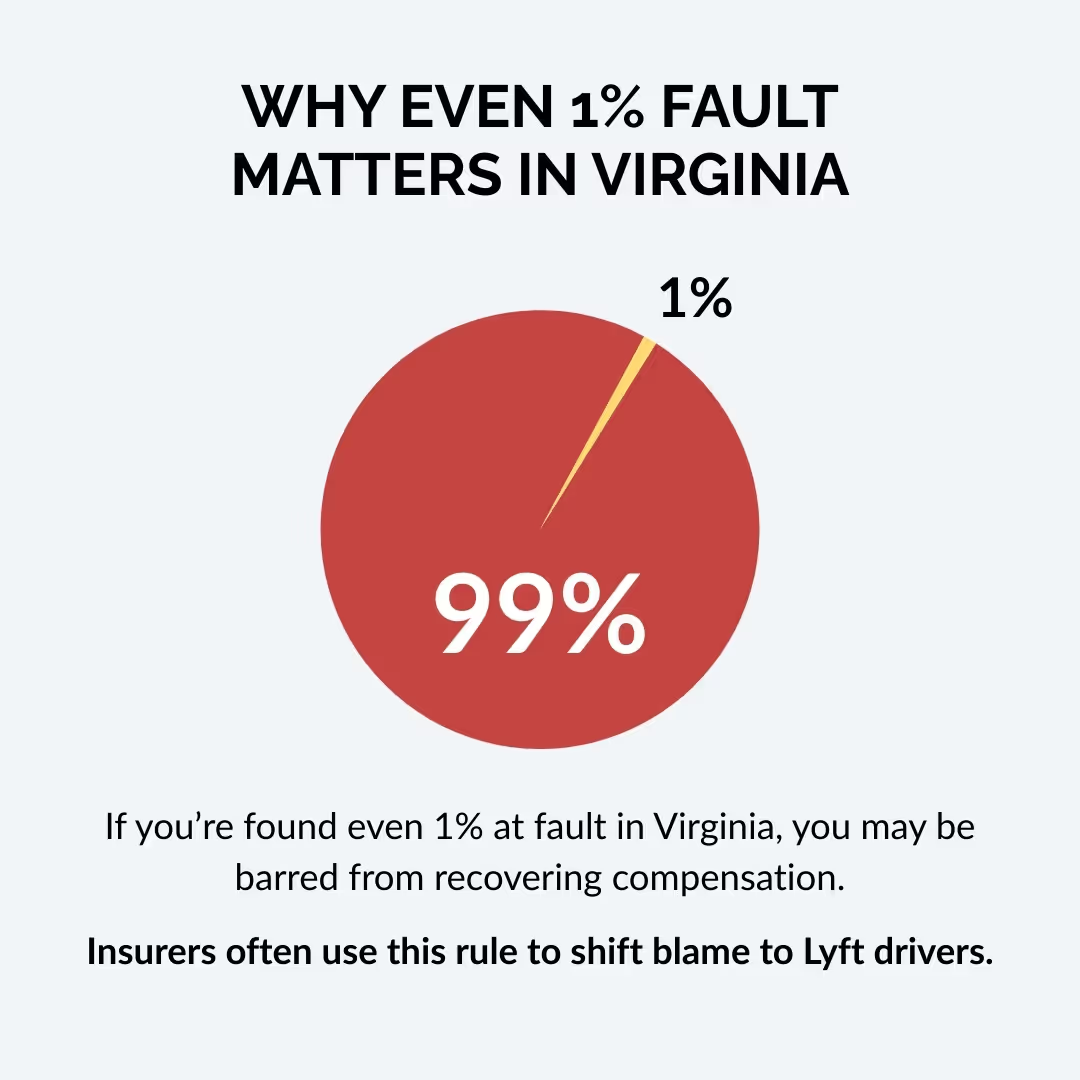Car Accident While Driving for Lyft, Now What?
Click on the link below to connect with our legal team for a free consultation, we’ll respond within 1 hour during business hours. Or call us 24/7 at (757) 244-7000.
Hurt in a car accident while driving for Lyft? Learn your rights and how to seek compensation.












An accident during a Lyft shift can leave you hurt, without transportation, and unsure how to keep earning. You might have already heard from the other driver's insurer, or even from Lyft, but you still don't know what steps to take to protect yourself. Meanwhile, medical bills and missed rides are costing you money every day.
Smith Law Center helps rideshare drivers handle everything after a crash, from figuring out who is responsible to getting compensation for your injuries, lost income, and vehicle damage. We deal with the insurance companies, gather the proof your claim needs, and guide you through the process so you can focus on getting back on the road.
Find out how we can help if you suffered injuries in a car accident while driving for Lyft. Contact us today for a free, no-obligation consultation by calling (757) 244-7000 or reaching out online.
"They Made It Easy When I Felt Overwhelmed"
Kathy Coorens remembers how stressful the idea of filing a claim felt after her accident. She thought the process would be exhausting and complicated.
"Smith Law Center did a wonderful job of getting me the compensation I deserved. I was so overwhelmed at even considering filing a suit, but they made it easy to undertake. They were professional and thorough throughout the entire process. I highly recommend this firm when life takes an unexpected turn with an injury that happens through no fault of your own."
For Lyft drivers, that kind of support means having someone who navigates the coverage rules, pushes back against low offers, and keeps the claim moving so you can focus on recovery and returning to work.
First Steps After a Lyft Accident
In the hours after a crash, you may be juggling calls from insurance adjusters, arranging a ride home, and trying to figure out what happens next. The steps you take now can affect both your recovery and your claim.
- Call 911 if anyone is hurt or if there is serious damage: Even if you feel fine, get medical attention as soon as possible. Adrenaline can mask pain, and injuries that seem minor can worsen over the next few days. Seeing a doctor right away creates a medical record that connects your injuries to the accident, which can be crucial for your case.
- Take clear photos of everything: the vehicles, the intersection, any skid marks, debris, and close-ups of the damage. Obtain the other driver's insurance information and contact details. If there are witnesses, ask them what they saw and record their names and phone numbers.
- Report the accident to Lyft through the app: They will ask questions and start their process, but remember that you are now dealing with their insurance company, which is focused on limiting payouts. Be cautious about giving a recorded statement to any insurance company without legal advice. What you say can be used to limit or deny your claim.
One detail that is especially important for Lyft drivers is your status in the app at the time of the crash. Whether you were waiting for a ride request, on your way to a pickup, or transporting a passenger determines which insurance coverage applies. Understanding the Lyft driver accident policy is the first step toward knowing where your claim should start.
%20(1).avif)
How Lyft Accident Coverage Works
The way Lyft accidents are covered depends on what you were doing in the app at the time of the crash. That status decides which policy applies and what compensation might be available.
- If the app was off, your personal auto insurance will handle the claim.
- If the app was on but you were waiting for a ride request, Lyft provides limited liability coverage that pays for the other driver's injuries or property damage, but does not cover your own medical bills or car repairs.
- If you were on your way to a pickup or driving a passenger, Lyft's policy provides up to $1 million in liability coverage. It can also include uninsured or underinsured motorist protection, as well as collision coverage if you have it on your personal policy. The collision coverage comes with a $2,500 deductible.
In many cases, more than one insurer may be involved, such as Lyft's policy and the other driver's. By stepping in early, we make sure the right insurer is held accountable and that coverage applies at its full value, no matter how many companies try to shift responsibility.
Protect Your Ability to Keep Driving and Earning: A car accident while driving for Lyft can affect more than just your car. Medical bills, lost driving time, and account reviews that delay your return to the road can all cut into your income. Smith Law Center helps Lyft drivers recover their losses and keep working.
Call (757) 244-7000 or contact us online for a free case review with a Lyft driver accident claim lawyer today.
Proving Fault in a Lyft Accident
After a Lyft accident, insurance companies will want to know who caused the crash. In Virginia, that answer matters more than most drivers realize. The state follows a contributory negligence rule, which means that if you are found even slightly at fault, you may not be able to recover compensation for your injuries or losses.
Insurance companies are well aware of this rule and often seek ways to shift blame onto the rideshare driver. This can include questioning your speed, your reaction time, or whether you could have avoided the collision. In Lyft accidents, they may also focus on your actions in the app or with passengers as a way to argue partial fault.
Proving the other driver was responsible requires more than your statement about what happened. Strong evidence can include the police report, photos from the scene, dashcam footage, trip records from the Lyft app, and statements from witnesses.
When an insurer tries to pin even a fraction of fault on you, we push back with evidence and legal arguments that protect your right to recover in full.

What Compensation Can Cover After a Lyft Accident
Once the fault has been determined, the next step is to identify every loss the accident has caused. For Lyft drivers, this can go beyond vehicle repairs and initial medical bills.
Compensation can also address lost income from missed shifts, ongoing treatment, and the long-term impact of serious injuries.
Many Lyft drivers cannot afford to take extended time off. You might feel pressure to get back on the road before your body has healed, but doing so can make injuries worse and give an insurer an excuse to argue that your recovery was incomplete because you returned to work too soon.
Having a Lyft driver accident claim lawyer on your side can help you recover enough to take the time you need without sacrificing your financial stability.
Recoverable damages in Lyft driver insurance claims can include:
- Medical expenses for emergency care, follow-up visits, therapy, and medication;
- Lost income and future earning potential if you cannot return to the same driving schedule;
- Vehicle repair or replacement costs;
- Pain and suffering related to your injuries; and
- Out-of-pocket expenses incurred due to the crash, such as transportation while your car is being repaired.
Studies have shown that having legal representation can make a significant difference in the outcome of an accident claim. A Martindale-Nolo survey found that over 90% of people who hired a lawyer received a settlement or award, compared to only about 50% who handled their cases on their own.
"When I talk to Lyft drivers after a crash, they tell me they're worried about paying the bills and keeping their account active. I work to secure compensation that keeps them afloat now and protects their ability to drive in the future."
— Howard Smith | Managing Partner
Why Lyft Driver Insurance Claims Can Be More Complicated
Lyft accident cases often involve more moving parts than a standard car accident claim.
Depending on your app status, you may need to deal with Lyft's policy, the other driver's insurer, and your own auto insurance. Sometimes this means handling all three at once. Each company will try to limit its share of responsibility. This can create delays and disputes
Coverage gaps are another problem. Lyft's liability coverage is limited if you were waiting for a ride request. Collision coverage comes with a $2,500 deductible even when it applies. In some cases, the available coverage may not fully cover medical bills or vehicle repairs.
If Lyft's coverage is not enough, you may still have options. You might file a claim through the at-fault driver's insurer or your own uninsured or underinsured motorist policy. In rare situations, drivers can sue Lyft directly. This might happen if the company's actions hinder your ability to recover, such as failing to maintain accurate trip records or prolonging the claims process until other recovery options expire.
The claims process itself can also be challenging. Lyft's insurer works for Lyft, not for you. Drivers who understand the Lyft driver accident policy are in a stronger position to pursue fair payment. Still, the rules can be complex, and the process can take time without experienced help. We step in before coverage disputes drag on, before your app status is used to reduce your protection, and before you are pressured into a low settlement to keep driving.
.jpg)
Deadlines That Can Affect Lyft Driver Accident Claims
For Lyft drivers, the clock starts running the moment the crash happens, and the timelines can be tighter than you think. In Virginia, you generally have two years to file a personal injury lawsuit and five years for vehicle damage, but waiting anywhere near that long can hurt your claim.
Some of the most important Lyft-specific evidence disappears quickly. Trip data in the app can become harder to access over time. Passengers who witnessed the crash may delete the app or become unreachable. Traffic camera footage along your route may be erased within days. Even your own phone's GPS history can become difficult to retrieve if not saved early.
Lyft's insurer and the other driver's insurer may also have short reporting deadlines built into their policies. Missing them gives the companies an opening to argue that coverage does not apply or that your injuries were not connected to the crash.
By acting quickly, you protect the ride records, passenger information, and digital data that can prove your claim. Delays can give insurers an excuse to pay less or deny benefits under Lyft driver accident insurance. When we are involved from the start, every Lyft-specific detail is secured before it is lost, and every deadline is met.
Get Help From a Lyft Driver Accident Claim Lawyer Now
If you were hurt in a car accident while driving for Lyft, Smith Law Center can step in now.
For over 70 years, Smith Law Center has helped injured Virginians recover fair compensation for medical bills, lost income, and other crash-related expenses. We have secured over $1 billion for our clients. Our team understands how Lyft's coverage works, how to handle overlapping insurance claims, and how to advocate for you when insurers attempt to reduce your payment based on your app status or driving history.
We act quickly to collect trip records, passenger information, and other time-sensitive Lyft data before it disappears. Our attorneys have the resources to handle multiple insurers simultaneously and the proven ability to calculate losses tied to your driving schedule and earnings.
Call (757) 244-7000 or contact us online for a free case review. The sooner you involve us, the stronger your claim can be.





FAQs
Frequently Asked Questions
Can I still drive for Lyft after an accident?
It depends on the extent of the damage, the fault, and Lyft's review process. If your car needs repairs, you cannot drive until it passes inspection, and Lyft may pause your account during their investigation. A lawyer can challenge unfair deactivation and pursue lost income if you were taken off the platform after a crash that was not your fault.
Can I file a claim through Lyft and my personal insurance simultaneously?
Yes. Many Lyft accident cases involve multiple insurance policies. Depending on your app status, your own policy, Lyft's coverage, and the other driver's insurer may all be involved. Filing with each one that could apply can help ensure all losses are addressed, but it is essential to coordinate these claims so that you do not provide conflicting information.
What happens if Lyft's insurer and the other driver's insurer both deny responsibility?
When this happens, you are stuck in the middle of a dispute over who should pay. Your claim can stall until the issue is resolved. A lawyer can step in to prove which policy applies and push both companies toward a resolution so you are not left without compensation.
Does Lyft provide rental car coverage while my vehicle is being repaired?
Lyft's insurance does not automatically include rental car coverage for drivers. If you have rental coverage under your personal policy, that may apply. In some cases, the at-fault driver's insurer may cover a rental, but this is not guaranteed and can require negotiation.
%201%20(1).avif)
About Smith Law Center
About Smith Law Center
%201%20(1).avif)







